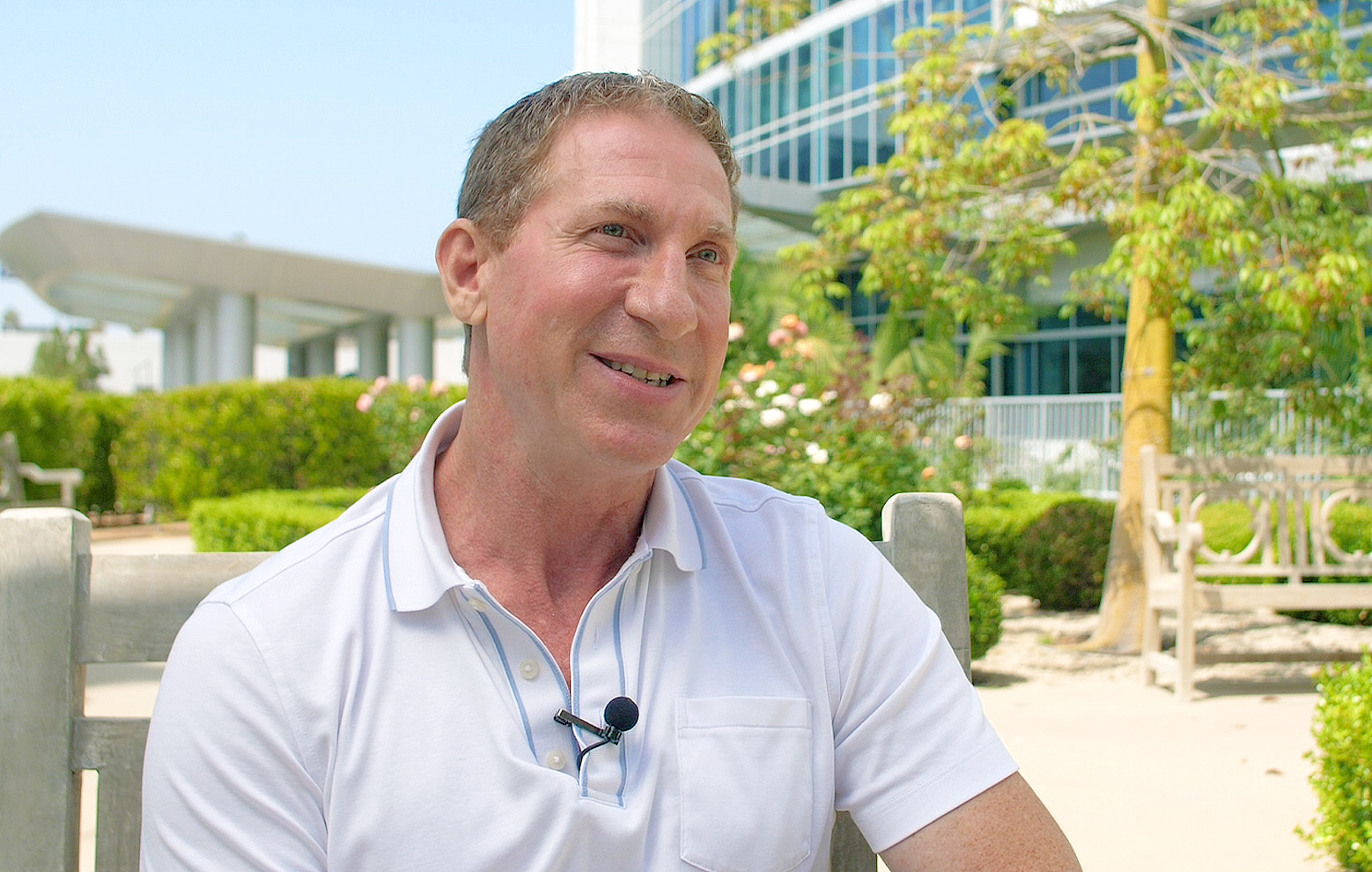
Diagnosed in 1997 under the late Donald Morton, MD, and attending physician Richard Essner, MD, John refuses to see anyone else when it comes to his Stage 4 cancer treatments.
Meet John Santoliquido; an extraordinary man whose keen love of life found himself advocating for nothing less than the life he wanted.
John’s care team was comprised of the late Donald L. Morton, MD, whose legacy pioneered the sentinel lymph node biopsy, which projected the Cancer Institute amongst the best in the nation for melanoma cancer care, and Richard Essner, MD, a peer of Dr. Morton’s, and now program co-director of the Melanoma, Skin and Soft Tissue center of excellence at Saint John’s Cancer Institute. John purportedly remained a patient of Dr. Essner even while Dr. Essner made a switch to Cedars-Sinai, and when Dr. Essner returned to Saint John’s Health Center to become the program director, John did as well. “It’s just nice being back here at this location because it really is a whole group working together for my best outcome,” John explains in his video vignette (below).
John Santoliquido has been cancer-free for 25-years of stage 4 metastatic melanoma.
Listen to John tell his story
John shares his experience with Saint John’s Cancer Institute in Santa Monica, California.
What is a slow-growing cancer?
“There is no precise way to measure the rate of growth of metastatic melanoma,” explains Dr. Kim Margolin. “We just use terms like that when it seems like a very long time between one crop of metastases and the next one.” In John’s case, it would take another 20 years for a metastasis to appear and in his right lung. More frequently than not, melanoma is an aggressive cancer, and once in the bloodstream may spread to places in the body, asymptomatically.
Dr. Margolin attributes John’s long survival to his immunity for being, “unusually strong against melanoma antigens.” Statistically, 30 percent of patients with metastatic melanoma make it to the 5-year benchmark.
Unique to John, is his ability to speak to the steady and improved progression in medical treatments over the past quarter century, and participated in some clinical trials, as a result.
How immunotherapy treatment for metastatic melanoma cancer improved over Time.
John’s cancer first appeared in his groan in 1997. It was soon realized that the primary tumor originated in his left calf and his diagnosis went from stage 2 to stage 4 (see staging). Treatment in the 90s included irradiating melanoma with TB (tuberculosis) and then injecting it into the affected areas, in this case, John’s groan and left armpit areas. He was then put on an immunotherapy treatment called alpha interferon, where John had to self-inject three times a week, “it was awful,” he reports. An immunotherapy treatment that later was done away with, “it was a very weak, very toxic immunotherapy,” according to Dr. Margolin, medical oncologist and co-director for Melanoma, Skin and Soft Tissue Tumors program at Saint John’s Cancer Institute.
Immunotherapy aids the body to fight cancer by utilizing the body’s own immunity to fight and target cancer cells. In 2014, a new immunotherapy treatment became available called, OPDIVO, which has revolutionized effectiveness and outcomes, especially with regard to advanced melanoma.
Melanoma tricks the immune system to not fight cancer, because the body doesn’t know it is cancer.
In 2018, John’s cancer came back in his right lung, and was put on OPDIVO for one year. He reports in his testimonial the difference in symptoms, and side effects–to which were mild to none in comparison to it’s predecessor.
Currently, John is not taking immunotherapy, but continues to come for his yearly exams.
Advise for those going through treatment today
Because John did not want his lifestyle to change, and he knew chemotherapy treatment would impact him, he questioned his care team for an alternative care path. He attributes his long life to pursuing other treatment options, i.e. immunotherapy, and to the doctors for seriously considering his needs. “They have kept me alive since 1997, so I put my life in their hands at anytime,” remarks John.
You have to be your own advocate as far as asking all the questions you can.
Save the date: Melanoma, Soft and Skin Tissues upcoming events
Santa Monica Melanoma Symposium is a CME event for professionals seeking to learn from the nation’s experts on Melanoma and cutaneous oncology. The next Melanoma Symposium will be held in May 2023. Follow @santamonicamelanomasymposium on Instagram to learn more.
A patient Melanoma Symposium will be held on October 29, 2022, for patients seeking answers. This event is generously being sponsored by AIM. Stay tuned for more venue specifics.

